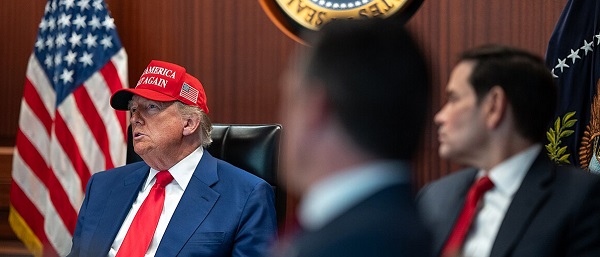Uncategorized
May gets rebellion reprieve, but faces warning from allies

LONDON — British Prime Minister Theresa May got a reprieve in one of her Brexit battles Tuesday as party rebels said they did not yet have the strength for a leadership challenge. But she faced a new headache as parliamentary allies warned they could remove support from May’s minority government if she does not alter her divorce deal with the European Union.
Northern Ireland’s Democratic Unionist Party struck a deal last year to back May’s Conservatives on major legislation. But the Protestant, pro-U.K. party opposes the Brexit deal’s plans for keeping the border between Northern Ireland and EU member Ireland open after Brexit, saying it weakens the ties binding the U.K. by creating separate trade rules for Northern Ireland.
In a warning to May, DUP lawmakers abstained or opposed the government during several votes on finance bill late Monday.
DUP lawmaker Sammy Wilson said the votes were “designed to send a political message to the government: Look, we’ve got an agreement with you but you’ve got to keep your side of the bargain.”
May defended her deal in an article for Tuesday’s Belfast Telegraph, saying it “puts Northern Ireland in a fantastic position for the future.”
She said businesses would benefit because Northern Ireland would “be a gateway to both the EU market and the rest of the U.K.’s market.”
In better news for the beleaguered British leader, a leading pro-Brexit lawmaker acknowledged that the rebels haven’t mustered the numbers for a leadership challenge.
Jacob Rees-Mogg is one of a group of Conservative legislators who have written letters calling for a no-confidence vote in the prime minister. They say the draft divorce deal would leave Britain tied to the bloc’s rules without any say in making them.
The group has previously said it was confident of getting the 48 letters — from 15
“Patience is a virtue, virtue is a grace,” Rees-Mogg said Tuesday. “We shall see whether letters come in due time.”
The draft agreement reached last week triggered an avalanche of criticism in Britain and left May fighting to keep her job even as British and EU negotiators raced to firm up a final deal before a summit on Sunday where EU leaders hope to rubber-stamp it.
The 585-page, legally binding withdrawal agreement is as good as complete, but Britain and the EU still need to flesh out a far less detailed declaration on their future relations.
May’s office said she would meet European Commission President Jean-Claude Juncker in Brussels on Wednesday as part of work to finalize the declaration.
EU leaders have largely welcome the deal, but Spain has expressed concerns, saying the wording leaves unclear how Gibraltar, the British territory at the southern tip of the Iberian Peninsula, would be dealt with.
Spanish Prime Minister Pedro Sanchez said Tuesday that his country would vote against the divorce agreement if Gibraltar’s future isn’t considered a bilateral issue between Madrid and London.
If the EU approves the deal it needs to be passed by the European and British Parliaments — where the parliamentary arithmetic looks daunting for May.
Rejection of the deal would spark a political crisis, with Brexit day looming.
___
Aritz Parra in Madrid contributed to this story.
Jill Lawless, The Associated Press
Uncategorized
Trump Admin Establishing Council To Make Buildings Beautiful Again


From the Daily Caller News Foundation
By Jason Hopkins
The Trump administration is creating a first-of-its-kind task force aimed at ushering in a new “Golden Age” of beautiful infrastructure across the U.S.
The Department of Transportation (DOT) will announce the establishment of the Beautifying Transportation Infrastructure Council (BTIC) on Thursday, the Daily Caller News Foundation exclusively learned. The BTIC seeks to advise Transportation Secretary Sean Duffy on design and policy ideas for key infrastructure projects, including highways, bridges and transit hubs.
“What happened to our country’s proud tradition of building great, big, beautiful things?” Duffy said in a statement shared with the DCNF. “It’s time the design for America’s latest infrastructure projects reflects our nation’s strength, pride, and promise.”
“We’re engaging the best and brightest minds in architectural design and engineering to make beautiful structures that move you and bring about a new Golden Age of Transportation,” Duffy continued.
Mini scoop – here is the DOT’s rollout of its Beautifying Transportation Infrastructure Council, which will be tasked with making our buildings beautiful again. pic.twitter.com/
9iV2xSxdJM — Jason Hopkins (@jasonhopkinsdc) October 23, 2025
The DOT is encouraging nominations of the country’s best architects, urban planners, artists and others to serve on the council, according to the department. While ensuring that efficiency and safety remain a top priority, the BTIC will provide guidance on projects that “enhance” public areas and develop aesthetic performance metrics.
The new council aligns with an executive order signed by President Donald Trump in August 2025 regarding infrastructure. The “Making Federal Architecture Beautiful Again” order calls for federal public buildings in the country to “respect regional architectural heritage” and aims to prevent federal construction projects from using modernist and brutalist architecture styles, instead returning to a classical style.
“The Founders, in line with great societies before them, attached great importance to Federal civic architecture,” Trump’s order stated. “They wanted America’s public buildings to inspire the American people and encourage civic virtue.”
“President George Washington and Secretary of State Thomas Jefferson consciously modeled the most important buildings in Washington, D.C., on the classical architecture of ancient Athens and Rome,” the order continued. “Because of their proven ability to meet these requirements, classical and traditional architecture are preferred modes of architectural design.”
The DOT invested millions in major infrastructure projects since Trump’s return to the White House. Duffy announced in August a $43 million transformation initiative of the New York Penn Station in New York City and in September unveiledmajor progress in the rehabilitation and modernization of Washington Union Station in Washington, D.C.
The BTIC will comprise up to 11 members who will serve two-year terms, with the chance to be reappointed, according to the DOT. The task force will meet biannually. The deadline for nominations will end Nov. 21.
Uncategorized
New report warns WHO health rules erode Canada’s democracy and Charter rights

The Justice Centre for Constitutional Freedoms has released a new report titled Canada’s Surrender of Sovereignty: New WHO health regulations undermine Canadian democracy and Charter freedoms. Authored by Nigel Hannaford, a veteran journalist and researcher, the report warns that Canada’s acceptance of the World Health Organization’s (WHO) revised International Health Regulations (IHR) represents a serious erosion of national independence and democratic accountability.
The IHR amendments, which took effect on September 19, 2025, authorize the WHO Director-General to declare global “health emergencies” that could require Canada to follow directives from bureaucrats in Geneva, bypassing the House of Commons and the will of Canadian voters.
The WHO regards these regulations as “binding,” despite having no ability or legal authority to impose such regulations. Even so, Canada is opting to accept the regulations as binding.
By accepting the WHO’s revised IHR, the report explains, Canada has relinquished its own control over future health crises and instead has agreed to let the WHO determine when a “pandemic emergency” exists and what Canada must do to respond to it, after which Canada must report back to the WHO.
In fact, under these International Health Regulations, the WHO could demand countries like Canada impose stringent freedom-violating health policies, such as lockdowns, vaccine mandates, or travel restrictions without debate, evidence review, or public accountability, the report explains.
Once the WHO declares a “Pandemic Emergency,” member states are obligated to implement such emergency measures “without delay” for a minimum of three months.
Importantly, following these WHO directives would undermine government accountability as politicians may hide behind international “commitments” to justify their actions as “simply following international rules,” the report warns.
Canada should instead withdraw from the revised IHR, following the example of countries like Germany, Austria, Italy, Czech Republic, and the United States. The report recommends continued international cooperation without surrendering control over domestic health policies.
Constitutional lawyer Allison Pejovic said, “[b]y treating WHO edicts as binding, the federal government has effectively placed Canadian sovereignty on loan to an unelected international body.”
“Such directives, if enforced, would likely violate Canadians’ Charter rights and freedoms,” she added.
Mr. Hannaford agreed, saying, “Canada’s health policies must be made in Canada. No free and democratic nation should outsource its emergency powers to unelected bureaucrats in Geneva.”
The Justice Centre urges Canadians to contact their Members of Parliament and demand they support withdrawing from the revised IHR to restore Canadian sovereignty and reject blind compliance with WHO directives.
-

 Crime2 days ago
Crime2 days agoPublic Execution of Anti-Cartel Mayor in Michoacán Prompts U.S. Offer to Intervene Against Cartels
-

 International2 days ago
International2 days agoNigeria better stop killing Christians — or America’s coming “guns-a-blazing”
-

 Justice2 days ago
Justice2 days agoA Justice System That Hates Punishment Can’t Protect the Innocent
-

 Business22 hours ago
Business22 hours agoTrump’s Tariffs Have Not Caused Economy To Collapse
-

 Daily Caller22 hours ago
Daily Caller22 hours agoTrump Reportedly Planning Ground Troops, Drone Strikes On Cartels In Mexico
-

 Alberta14 hours ago
Alberta14 hours agoAlberta government’s plan will improve access to MRIs and CT scans
-

 Alberta1 day ago
Alberta1 day agoCanada’s heavy oil finds new fans as global demand rises
-

 Daily Caller1 day ago
Daily Caller1 day agoNigeria Would Welcome US Intervention In Massacre Of Christians By Islamic Terror Groups









